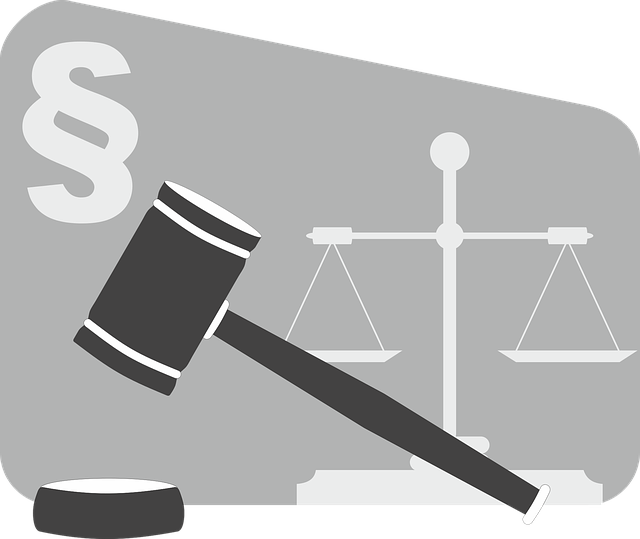Securities Class Actions provide a powerful tool for addressing financial sector misconduct, with significant legal consequences for perpetrators and deterrence for future violations. When resolving real estate disputes involving securities, legal professionals play a crucial role in navigating complex issues like fraud or misstatement through strategies such as negotiation, mediation, arbitration, and settlement conferences. Understanding the root causes of disputes, reviewing contractual agreements, and analyzing market dynamics are key to ensuring fairness and transparency. Effective case management requires open communication, streamlining investigations, and addressing diverse stakeholder interests. Engaging experienced attorneys skilled in white-collar defense and integrating comprehensive criminal strategies is vital for securing favorable outcomes in these complex cases.
Securities Class Actions: Navigating Legal Complexities and Resolving Disputes is your comprehensive guide to understanding and managing these intricate legal matters. This article delves into the intricacies of securities class actions, offering insights on key aspects such as dispute resolution, common real estate-related issues, and effective case management strategies. Discover how legal professionals play a pivotal role in settling disputes, providing a roadmap for successful resolutions. Learn essential considerations to navigate these challenges, especially in the context of How to Resolve Real Estate Disputes within securities cases.
- Understanding Securities Class Actions: An Overview
- The Role of Legal Professionals in Resolving Disputes
- Common Issues Arising in Real Estate Securities Cases
- Strategies for Effective Case Management and Negotiation
- Key Considerations for a Successful Securities Class Action Resolution
Understanding Securities Class Actions: An Overview
Securities Class Actions offer a powerful mechanism to address wrongdoings in the financial sector. Essentially, it’s a legal process where investors who’ve suffered losses due to corporate misconduct can band together and take collective action against the responsible entities. This collective approach not only facilitates more significant legal repercussions for wrongdoers but also serves as a deterrent for potential future violations.
Understanding how these actions work is crucial, especially when considering How to Resolve Real Estate Disputes. For instance, in cases of fraud or misstatement related to securities, investors can file a class action lawsuit against the offending company and its responsible parties. This includes scenarios involving white collar and economic crimes, where complex financial schemes might impact numerous victims. Even philanthropic and political communities aren’t immune; transparency and accountability are vital, ensuring these actions can also be employed to address misconduct within non-profit organizations or government entities.
The Role of Legal Professionals in Resolving Disputes
Legal professionals play a pivotal role in resolving securities class action disputes, offering expertise and specialized knowledge to navigate complex legal landscapes. When it comes to how to resolve real estate disputes that involve securities, these professionals are instrumental. They employ strategic tactics, such as negotiation and mediation, to facilitate agreements between plaintiffs and defendants. By leveraging their understanding of both security regulations and contract law, they ensure that all parties’ rights are protected.
In many cases, legal counsel may also explore alternative dispute resolution methods, like arbitration or settlement conferences, which can result in a complete dismissal of all charges. This not only saves time and legal fees but also allows for more confidential resolutions, fostering cooperative relationships between businesses and their respective clients.
Common Issues Arising in Real Estate Securities Cases
In real estate securities cases, several common issues often arise, creating complex legal landscapes for investors. These disputes can involve allegations of fraud, misrepresentation, or breach of fiduciary duty related to property investments. For his clients, navigating these complexities requires a strategic approach that combines financial acumen and legal expertise. Many conflicts stem from misunderstandings about property values, hidden risks, or the legitimacy of real estate investment opportunities.
Addressing these issues effectively involves a thorough review of contractual agreements, regulatory compliance, and a deep understanding of the market dynamics. The goal is to ensure fairness and transparency for all stakeholders—a principle that resonates beyond the confines of legal halls, extending into the broader philanthropic and political communities. How to resolve real estate disputes then becomes a nuanced dance, requiring careful consideration of both the specific case details and the broader implications for investor confidence and market integrity.
Strategies for Effective Case Management and Negotiation
Effective case management and negotiation strategies are crucial for navigating complex securities class actions. One key approach is to foster open communication between plaintiffs’ counsel, defendants, and relevant stakeholders. By promoting transparency, attorneys can efficiently exchange information, identify common interests, and explore potential resolution avenues. This collaborative process aids in streamlining the investigation and enforcement stages of the dispute, ensuring all corporate and individual clients’ concerns are addressed.
Additionally, understanding the client’s objectives and expectations is vital. Plaintiffs’ lawyers should engage closely with their clients to define desired outcomes, whether it’s financial compensation or specific remedies. This knowledge guides negotiation tactics, enabling attorneys to advocate for their clients’ interests throughout jury trials (if necessary) and ultimately achieving a favorable resolution that reflects the case’s merits.
Key Considerations for a Successful Securities Class Action Resolution
When it comes to resolving securities class actions, a successful outcome hinges on several key considerations. First, understanding the unique complexities of these cases is paramount. Securities disputes often involve intricate financial transactions and regulatory frameworks, requiring a deep expertise in both finance and law. Engaging experienced legal counsel well-versed in white-collar defense strategies becomes indispensable for navigating this labyrinthine landscape.
Additionally, fostering effective communication and transparency between plaintiffs’ attorneys and the affected stakeholders is crucial. This collaborative approach can streamline the resolution process, enabling efficient negotiations. By considering the interests of all parties involved—including the philanthropic and political communities that often have a stake in such cases—a more balanced and fair outcome can be achieved. Moreover, integrating a general criminal defense strategy can bolster the overall case management, ensuring that all legal angles are thoroughly explored for a successful resolution.
Securities class actions, while complex, can be effectively navigated with the right strategies. By understanding the fundamentals of these legal proceedings and leveraging the expertise of legal professionals, it’s possible to resolve disputes efficiently. When dealing with real estate securities cases, recognizing common issues and implementing effective case management practices is key. Ultimately, successful resolution hinges on thorough consideration of all factors involved, ensuring a just outcome for all parties. For those seeking to resolve real estate disputes, these insights provide a solid foundation to move forward.






